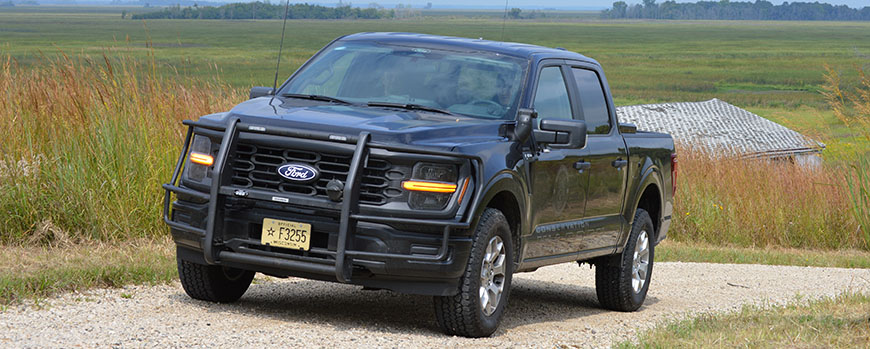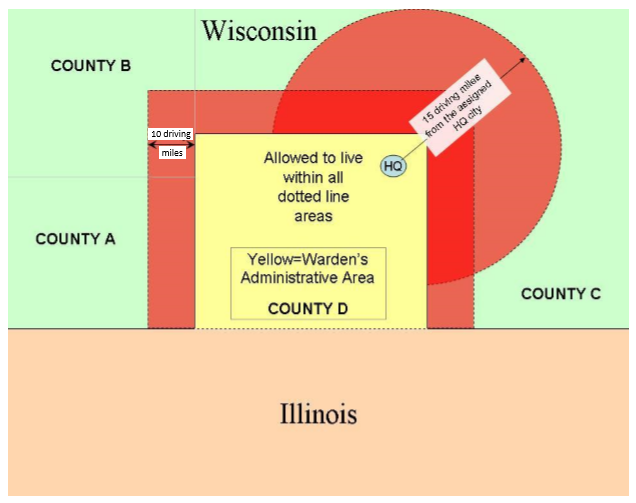The First Year of Training; What to Expect

Newly hired warden recruits have a 24-month probationary period. The first 12 months are spent in training that includes the DNR’s law enforcement academy, field training assignments and specialized training weeks. All of this training includes a natural resources “twist” with an environmental law enforcement angle. Recruits are away from home the majority of their first year. After all the training is successfully completed, recruits are assigned to their first field station at the beginning of their second year.
Law Enforcement Academy
The DNR provides a 720-hour law enforcement academy, based on the Department of Justice standard. This academy is the first step for all new conservation warden recruits. Those new recruits who have already completed an academy or who have prior law enforcement experience may be eligible for our accelerated training program, which condenses the academy and field training process. The academy is held at various sites near Sparta, Wisconsin, and is led by DNR training staff. New recruits are provided with housing, meals, and free access to a physical fitness center. Academy classes generally run Monday through Friday and the recruits can return home on weekends. The academy curriculum includes:
- foundations of professional policing;
- the legal context;
- tactical skills
- patrol procedures;
- investigations; and
- physical fitness and officer wellness.
In order to successfully pass the academy, recruits must pass section tests throughout the academy, a handgun and rifle qualifier, final testing scenarios and the academy graduation fitness standards.
| Academy Graduation | |||||
| Vertical Jump | Agility Run | Sit-ups | Push-ups | 300m Run | 1.5-mile run |
| 14 inches | 19.5 sec | 30 in one minute | 23 untimed | 68 seconds | 16:57 minutes |
Field Training
Recruit wardens who successfully pass the academy move onto field training. Recruit wardens must complete four field training phases that are each five weeks long. Field training phases may occur anywhere across the state of Wisconsin and these locations are determined by the DNR. During field training, recruit wardens receive on the job training and mentoring from more experienced conservation wardens and their performance is evaluated at the end of each training phase. Lodging is provided for recruit wardens during these assignments.
Specialized Training Weeks
During the first and second year of training, recruit wardens participate in several specialized training weeks, which include:
- boat, ATV and snowmobile operations training (watch the ATV training video);
- hunting, waterfowl, trapping and environmental enforcement;
- interview, interrogation, and media training; and
- hunting and boat incident investigation.
Permanent Work Location
Once training is complete, new wardens report to their assigned station/administrative area. Each of our conservation wardens is assigned a geographic area of responsibility (administrative area). Often times, that administrative area is an entire county or portion thereof. Once a new warden has completed their training and begins working in their assigned administrative area, our living requirements go into effect. If a warden chooses to live within their administrative boundary there are no mileage restrictions to consider. If they choose to live outside their administrative boundary, then they must live within 10 miles of the administrative boundary or within 15 miles of their headquarters city. Please note, marine wardens and recreational property-assigned wardens have different living requirements.
Second Year and Beyond
The second year of probation takes place in the assigned field station. New wardens spend this year learning to plan and prioritize their day’s activities and learning their county. Recruits also begin to develop community relationships and build their own education and enforcement programs. After successfully completing their probationary period, a new warden is eligible to put in for a voluntary transfer to a vacant field station, as well as compete for promotional opportunities. Wardens can also take on other responsibilities such as joining a specialized team, becoming a field training officer or serving as an academy instructor.
- Warden Recruiting Updates - Want to know when wardens are recruiting and hiring, and receive our newsletter?

